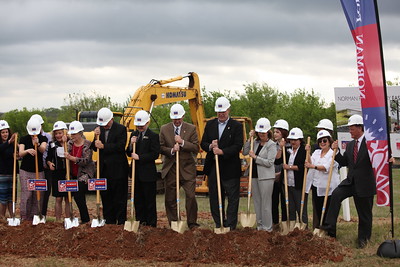Earlier this month, the University of Colorado Denver announced that it would face a $12M budget shortfall. The institution is not permitted to run a budget deficit, so its financial issues must be resolved no later than the 2024-25 fiscal year.
Officials cited a litany of reasons to explain why CU Denver’s expenses currently exceed its revenues. Fall enrollment was 1.2% lower than expected. When university officials built the current budget, they believed the school would enroll about 15,200 students. They missed that mark by about 200 students.
By itself, decreased enrollment does not fully explain the budget deficit.CU Denver charges about $11,500 annually for resident students and about $29,000 for out-of-state students. Had the school met its enrollment targets, that would have produced additional revenue of between $2.1M and $5.3M. That would still have left the university between $6.7M and $10M short.
Inflation has also hit CU hard, but even accounting for inflation at 10%, which significantly exceeds the actual annual inflation rate of about 7.1%, the university would still have encountered deficit spending. In response, CU Denver administrators plan to engage the faculty and staff in a multi-year initiative to both reduce expenses and grow the institution.
(It’s hard to imagine what might be causing that budget deficit…)
For the current fiscal year, the administration plans to use reserve funds to patch the newfound holes in the institution’s budget. But that will not suffice in terms of eliminating what appears to be a structural deficit. According to Chancellor Michelle Marks, the university will refocus its efforts on student recruitment, retention, and graduation. Currently, CU Denver has an acceptance rate of about 72% and a graduation rate of about 58%.
Budget deficit no reason to pause downtown construction
Earlier this month, CU Denver said that it has paused plans for a new engineering campus, citing the rising costs of construction and financing. The university wants to attract engineering students with a new engineering facility. Initially, the university received construction estimates of $60M-$70M and would have broken ground in April 2023. Construction costs in Denver have risen 2.5 times faster than the national average. Administrators say the construction delay is unrelated to the school’s $12M deficit. They emphasize that they will restart the project once they determine how to accommodate the rise in project costs.
The university has also said that it will consider eliminating positions. Administrators vow to evaluate every position at the school, to determine whether the position is required. Although administrators say that they will take a targeted approach to the reductions, they have asked departments at the university to propose 4% budget reductions for the current fiscal year, and to budget 3% reductions in spending for the 2023-24 budget cycle.
Faculty members, who oppose what appear to be drastic changes to instruction, say that their course caps have already been increased and sections have been cut. In addition, they’re being pressured to move courses online, and to rely more heavily on lower-paid graduate student assistants. The university has also instituted a hiring freeze, which means that open positions will not be filled. Currently, CU Denver employs about 1,100 faculty members.
Colorado ranks 49th out of 50 states in terms of state spending per student at the university level, so it’s unlikely the school will receive a bailout from state legislators. About 75% of CU Denver’s revenues come from student tuition. The state provides about 15% of its revenues, and the remaining 10% comes from other sources, like research.
Overly optimistic budgeting, administrative costs might be a problem
The CU Denver administration wants to increase enrollment by 10,000 students by 2030. That would mean adding about 1,500 students annually. That’s unrealistic, given the national trend of declining enrollment. Further, with minimal state funding, the school’s revenue options are limited. Further student tuition and fee increases will decrease enrollment. Faculty layoffs will reduce the school’s research funding.
It’s interesting that the CU Denver Administration has already instituted changes that affect the faculty and staff. They have identified declining enrollment and rising inflation as problems. However, they haven’t identified their own overly optimistic budgeting or – dare I say – the size of the administration as a problem. In fact, this same over-optimism leads them to believe they can recruit an additional 1,500 students per year every year through the end of the decade.
According to faculty members, the university administration has known for a year that they had a developing budget crisis, but the faculty is only now finding out about it. And much of the proposed relief will seemingly come from staff and program cuts. A massive downtown construction project – which is a known factor in driving higher attendance costs for students – can’t possibly cause future budget problems for the university, can it?
(“If you build it, they will come” only works in Hollywood.)
Administrators never seem to see that the cost and size of the administration, and their grand construction plans have a net negative impact on the institution’s finances. These unnecessary expenses – which inflate tuition and fees – don’t attract students; rather, they chase students away. That only further exacerbates the institution’s budget deficit.
The first rule of getting yourself out of a hole is to stop digging.
Photo Credit: Pioneer Library System , via Flickr


































